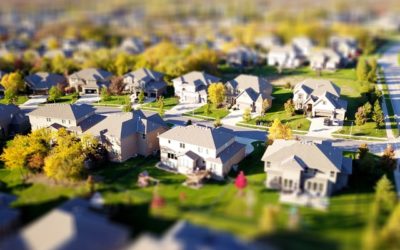I want to share three books that made a big difference while setting that mindset to become a real estate investor. Now, these are books that are not only going to teach you strategies on how to become the best of the best in terms of real estate investment, but it’s also they’re books that are going to talk about mindset. How do you set yourself and make yourself ready to become that great real estate investor that you’re looking to become?
People keep asking me what books do I recommend to read for real estate investing. After extensive soul searching, I narrow the list of the best real estate books down to three: Rich Dad Poor Dad, 7 Habits of Highly Effective People, and Long-Distance Real Estate Investing, and in this post, I’ll tell you why I think they are the best.
There are plenty of beautiful books to read. However, real estate is much more than just investing. The books I selected will help you become a comprehensive investor that will master all investing and interpersonal skills.
Rich Dad, Poor Dad
First thing first, there’s no surprise, book number one is Rich Dad, Poor Dad. This book makes such a big difference because, one, it changed my way of thinking. I want to tell you a little bit about myself. My parents owned a restaurant in Venezuela when I was growing up, like the cost of what I am and not who I will say it’s a rich person because I went to school with rich kids. My parents managed to save enough to afford great education for their kids, and basically, I was sent to school with kids whose parents were doctors, lawyers, and stuff like that. All of a sudden, my dad owned a restaurant.
He’s no different than any Chinese restaurant owner that you will picture here in the US. He wore the same shoes, the same pair of pants for I don’t know, like 17 years, ever since I remember, he always had the same pair of black pants and a button-down white shirt and smelled like Chinese food. In my mind, he wasn’t someone who sadly I would aspire to become. Now, I take great pride in them but back in the days when I was a teenager, you don’t know you wanted to fit in. I did everything to become the opposite of who he was. Well, he is. He’s still alive and the same thing with my mom. They were extremely frugal. They were always saving money for something. No vacations whatsoever, no fancy stuff. Always the basic.
When I had the chance to come to the state, I did the opposite ultimately. I put a lot of money on my credit cards. I spend on the latest designer jeans. I spend on the newest pair of designer jeans, Michael Kors bags, expensive watches, anything that you could ever think of that will make you look expensive, mind you that my mom used to joke around I had this very expensive, Michael Kors packable. When you open it, it was only less than five bucks in it. She used to think, “Oh, it’s ironic that you have such an expensive handbag, but there’s no money in it.”
When I read Rich Dad, Poor Dad, I realized that I was the poor dad. I was really on the intellectual side, kind of like his poor dad. I went to school, studied business, and then pursue my MBA. I was this very “well-rounded” individual, highly educated, had a nice job, a six-figure salary, but there was no money left in my account in reality. As much as I will make, that’s as much as I will spend. I had a very expensive lifestyle. When I read this book, it was recommended to me by one of my mentors. I had a career coach when I was back in school. Then he said,” I don’t think I’ve ever seen your wear the same clothes twice. Every time you visited me, you always had something different on you, which is difficult to explain since you’re a student. Students, typically, you’re broke, right? You have all of your money spent on your education, so how did you afford to get that much money?”
Then he said, “I’ll tell you what, how about you read this book, Rich Dad, Poor Dad, and you tell me what you think.” That completely changed my whole mindset. It made me realize that my parents were always the rich dad. They did not spend money on things that would not give them anything back. A pair of designer jeans, other than satisfying that lovely moment of happiness, it was only an instant gratification kind of thing but that jean will not replicate your money.
My parents knew where to put their money to make it grow, in essence, and they saved enough money. They spend ten plus years, and I would say about 20 years being extremely frugal until they saved enough, and that’s when they decided to invest in real estate and brought me on board to help them invest their money. If you want to learn more about how I did it, here’s a post that you can check out how I started in real estate investing. That was by using my parents’ money and making it grow for them at the time.
Eventually, my dream, I watched a lot of HGTV at the time. I wanted to buy this big house and live in it with a nice pool, a nice expensive kitchen, everything on top of the line. Then I realized that thanks to that book, that was a poor mindset because I would be a slave to the house. A house is not an asset, just like he was saying in his book. It’s only an asset if you can turn that house into something that will give you money, some sort of like passive income. I used to see a house that I will always have to work and pay for it.
It never occurred to me that, “Hey, if I let’s say buy a house, but then instead of buying a single-family, I can get a duplex, then I can rent out the other side.” Then that rent that’s coming my way is going to help me cover the mortgage, so even if I were to lose my job, I’d have some sort of income that’s going to cover or at least take care of part of the mortgage, and that will be less of a pressure on me. That’s when I started realizing a house is not an asset, then what else?
Eventually, he went on and talked about a lot of different concepts. He spoke about making money work for you. There is also another breaking moment for me. I realized, “Wait, all this time with all of my education, all of my masters, and my special certifications and stuff like that career-wise, how can I make money from me because this entire time I was working for money? If I didn’t show up for work, I would not make money.” What’s going to come my way to help me cover some of my expenses? I learned that anything I was buying shoes, a nice expensive car, and eventually, the willingness to save to buy my place didn’t necessarily translate into income flowing my way. I was like a car unless you rent it out to an Uber or Lyft driver, that’s not going to become a passive income for you. Because if you stop working, then the car’s going to go away, and that sort of thing.
Ads
Another lesson that I learned from reading that book was that if you own a business, that doesn’t necessarily mean you’re financially free. Kiyosaki goes over, not in detail. There’s another book that covers that but the whole cashflow quadrant. Suppose you’re in a business owner quadrant. In that case, it doesn’t mean you’re free because the whole idea about having a business is that you can step away from it and still make money while you’re not there. That’s because you have systems in place that will make it work automatically and buy your time to do other things that are worth it.
You can do it either through audible, it will save you a lot of time because you can handle many other things while you’re listening to that book, or you can just simply get a hard copy and flip through the pages and learn a lot more. My summary doesn’t do justice to what the book covers. It’s mind-blowing. It doesn’t give you how-to steps on, “Oh, this is what you should do to get started in real estate.”
He talks about a change of mindset, how that mindset got him involved in real estate, and how he could build a fortune by investing his money in real estate and buying real estate. He got started because he didn’t have much money, to begin with as well. He was lucky enough to have two dads, a rich and a poor dad, and he just basically took the best of both worlds. Then he decided to build an empire based on that information. That’s the first book, Rich Dad Poor Dad, by Robert Kiyosaki.
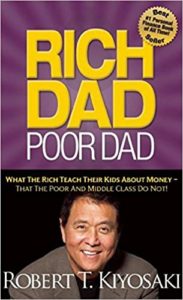
Seven Habits of Highly Effective People
The second one that I like, it has nothing to do with real estate. It’s more of a book that talks about mindset and talks about business in general, as a whole. Everything around you is impacted by the way you think, and that book, it’s Seven Habits of Highly Effective People, and Stephen Covey writes it. He has these seven rules, seven habits that people, if you follow those, your guarantee, or at least, for the most part, you will become highly successful. Those are the habits you have to put into practice, make it part of your routine, and become highly efficient in what they do successfully.
Out of the seven, there’s one that resonated with me mainly because I already put that in practice. I didn’t realize that I was doing it. When I found that I was giving myself a tap on the shoulder, it’s called Begin with the End in Mind. The way I view it is more like begin with the goal in mind. If you have your goal, how can you make that happen?
That was always my vision to get things done. I always visualize. I want to have 24 properties and then eventually plan it to make things happen. I have no clue how I will make it work, but I will make it work. It’s all a matter of being alert to see what signals, the cues; life is throwing your way and picking it up. But always keep your focus on that end goal. Always keep that end in mind because no matter what happens, you’re going to get there. I’m sure all of you have seen that graphic somewhere on the internet, where success is not always a straight line, but it’s something that goes this way.
Guess what? This is precisely the way it is like, but as long as you focus your attention on the end of what you’re trying to achieve, believe me, as much as you somewhat get the rail, you’re always going to find your way to get on that main path and still achieve your goal. Some of the other things that he shares on its think win-win. As I mentioned before, real estate is a relationship-building business. You can’t come in and work things out to benefit your way and not benefit anyone else who is helping you in that journey.
For example, that’s your real estate agent or your property manager. It has to be a constant feed of either information or things that will benefit both parties or anyone involved. It teaches you the benefits of doing that. Let’s say if you’re going to a real estate agent, and you’re not serious about what you’re doing, and you’re like, “Oh, show me this house, show me this house,” but then, in reality, you have no intention of pursuing any of the houses that he or she is showing you for. Yes, it’s information for you because it’s helping you take a look or kind of like, get a sense of what type of inventory it’s out there available in the market.
But what is the realtor gaining out of it for you? Yes, they’re doing all of this research, basically for free, and you’re taking away their time, valuable time that they’re devoting to you when they can use that time and give it to someone else. That’s just one particular example and how fast you take things to turn around. For example, if you go to a bank and say, “Hey, I want to close on this property, and how much is it?” so the bank is getting his things ready for you. They’re working on the legal stuff, and the documents are requesting. So in that way, they can start like crossing everything, any item that’s on the list that they require to get you approved, but then, you’re not giving them anything, you’re not providing them with a copy of your taxes or your pay stubs.
Anything that is required on their end to get things done so they can help you. What’s the incentive other than just money, them getting fees out of the mortgage engagement that they’re trying to help you facilitate? Versus you getting the money, other than just a monetary incentive. What else are they getting out of it with you, right? You have to focus on the relationship-building part. This book touches upon that idea. It’s not what you’re getting out of it. But what is also the other person get it out of that engagement with you? How are you benefiting them?
Ads
Another thing that also Steve Covey talked about in the book it’s to be proactive. It’s also another one of those habits that you will need to become efficient, effective. Why be proactive? You have to feed information in both ways. You can’t just come in and say, “hold, give me this, this, this and that.” But then you’re not giving them anything in return. Great job. Thank you for your assistance. Oh, wait, you know what? You’re not doing this right. I think there’s room for improvement here in a constructive way, right? Don’t do it condescendingly. You’re not doing anything, right. Just do it nicely.
But there’s got to be some kind of interaction, which again, it goes back to the whole idea of relationship building. Real estate is based on relationships, what makes you so unique that people want to help you and not want to help the other person if they’re both coming in at the same time. A great, very, very, very useful book, same thing, and if you can’t read it on paper, try to do it through audible. It will help you tremendously and get yourself organized to identify specific patterns that probably you didn’t know about and try to incorporate some new tools, some new habits that will help you become even more effective in what you do.
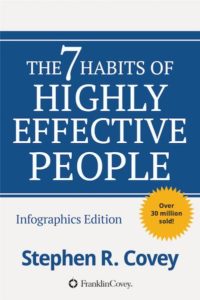
Long-Distance Real Estate Investing
The last one is, by far, my favorite of all real estate books. That is an actual how-to book on real estate investing. It’s called Long-Distance Real Estate Investing by David Greene. I also realized that I was doing some of the stuff that he was already suggesting when I started reading his book, which is like, it gives me peace of mind, it makes me realize, okay, good job, good job. You’ve been doing it right. A little bit about David Greene: he’s a retired cop.
He started doing real estate investing when he was a cop. He discovered something at the time for him. He started leveraging technology, so he didn’t start investing in real estate properties behind his backyard. He leverages different tools, separate tools like DocuSign, like those I already shared with you in some of my videos Google earth, Google map. He teaches you about how to even collect rent without necessarily going in into the property and collecting the cash or the checks.
I realized that some of the things that he was talking about, I was already implementing. DocuSign is one of them. It gave me peace of mind that I was even not going down the wrong path. He also teaches you a lot about different calculations and how you can measure what will be a good deal.
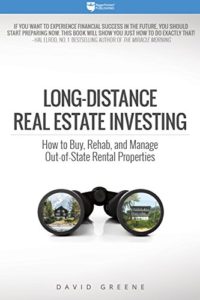
What happens behind the scene after you sign a loan? How does it get sold to another investor? Then he even teaches you how to pitch to the bank whenever you hit that mark, or whether you’re a new investor or not. He teaches you word by word, what to write in an email, how to approach a conversation, what to tell the lender so that you become someone who’s appealing to that lender, and show that you’re applying a win-win situation. Hey, you come in, hey, I’m coming in. I need you to lend me money. But in return, I’m going to do this for you. It’s not undoable.
It’s something that is it can be quickly done on your end. I highly recommend this book. At this point, I think David Greene is retired from his job as a cop, and he does real estate investing full time. I suggest you check his book out 100%. Again, if you don’t have the time to read the paper version, there’s always audible and listen to it. I’ve listened to his book about three times. At this point, there’s always something new. I learned out of it.

RESOURCES & LINKS MENTIONED IN THIS EPISODE:
– Link to books click here: https://kit.co/novarise/real-estate-books
– Audible by Amazon (30-Day Free Trial): https://amzn.to/2T8SWUw
HAVE A SPANISH SPEAKING SPOUSE OR BUSINESS PARTNER?:
Here is Novarise Latino: http://bit.ly/videosNovaRiseLatino
FREE WEBINAR:
Learn how to invest in real estate without savings and still have enough to expand your portfolio, click here for a FREE training https://www.novariseinvest.com/webinar
For questions & consultations, please visit us at https://www.novariseinvest.com/
